Jelly Bean, KitKat continue their rise in Android distribution

Google's Android distribution charts give us a fresh look at adoption trends with each monthly update. In early-March, we see Jelly Bean and KitKat continuing their rise in popularity, while older iterations of the popular open source operating system are on their descending path.
Based on the number of devices accessing the Play store in the seven days ending March 3, KitKat is running on 2.5 percent of monitored Android handsets. Its distribution share is 38.88 percent higher compared to the previous month, when it accounted for 1.8 percent. KitKat will see a stronger uptake once smartphones like the new Samsung Galaxy S4 are released, and vendors upgrade their existing devices to the latest Android iteration.
BlackBerry brings OneDrive to BB 10 smartphones
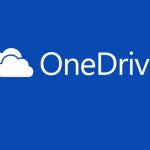
After being forced to drop the SkyDrive name following a legal dispute with UK broadband provider Sky, Microsoft relaunched its cloud storage service, last month, under a new, yet somewhat familiar moniker, OneDrive. Rebranded apps quickly hit Android, iOS, OS X and Windows Phone, adding new features in the process.
With the OneDrive roll-out almost complete, BlackBerry (yes, that is right) just introduced the cloud storage service on its own platform, BlackBerry 10. The move effectively gives Microsoft access to more potential customers, and allows OneDrive to better rival the availability of other market competitors, like Box.
Windows Phone finally gets Facebook Messenger, 'app gap' slowly closing
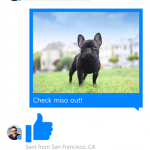
Windows Phone head Joe Belfiore spoke last year of the Windows Phone app gap, claiming that it would end before the start of 2014. Unfortunately for the platform, that has not turned out to be accurate as there are still lots of great titles that are either missing from Store or offered in a half-baked version on the tiled operating system. The good news is the app gap is actually closing, albeit slowly (and not anytime soon).
Microsoft revealed at MWC 2014 Facebook Messenger will launch on Windows Phone, and the app is finally available in Store today. This is one of the most important wins for the platform, as the service is hugely popular in many markets.
Chromium browser succesfully ported to Ubuntu's Mir display server

When Canonical decided to shun the Wayland display server for its own, called Mir, the Linux community was up in arms. Many people felt that Canonical was not being a team player. While I understand that point of view, the company is well within its right to go in a different direction with Ubuntu. After all, open-source and free software is about choice -- not falling in line.
Unfortunately, getting things up and running on Mir will take time. Today however, a major milestone has been achieved -- the Chromium browser has been ported to Mir.
Linux desktop environment Mate achieves 1.8 release
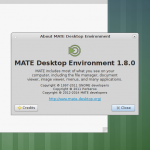
Linux users do not like change. Well, actually, they do not like change for the sake of change. If something works, they typically hang on to it until something truly better comes along. A good example of this is GNOME 2. People love it and it works well. However, the GNOME Project moved to version 3 and radically changed how it works. GNOME purists were angry as version 2 worked just fine -- for them. And so, many hung onto the outdated version, shunning version 3.
Luckily, Linux and open-source software enables forking. Forking is basically taking source code, but taking it in a different direction than the original creator. And so, The Mate Desktop was created as a fork from the ashes of GNOME 2. Today, Mate 1.8 releases to the world.
Where have all the fanboys gone? Is brand loyalty dead and buried?

This is a personal account of the way I have noticed the technology markets changing over the years. It is not gospel, and you are welcome (encouraged, if you like) to disagree… It's not all that long ago that brand loyalty was a given; it was almost the default setting for many people. If you got into computing -- and it was something you "got into" rather than just having as part of your life -- you stuck loyally to whatever brand you chose at the start. We could go back to the 70s and look at the birth of personal computing, but as this is my personal account, we'll have to start in the 80s.
I did just manage to sneak into the 70s -- being born in 1979 puts me in the difficult-to-comprehend position of being 34 years old but having seen five decades -- but an interest in computing didn't emerge until some time in the late 80s. I remember there being several computing camps: BBC, Amstrad, Spectrum, Vic and Commodore to name a few. My decision was made for me at an early age when my dad decided to invest in a Commodore 16 Plus 4 (the Plus 4 referring to the fact that the OS featured four built-in applications including a spreadsheet tool, the absurd simplicity of which was not lost on me even at a young age).
Roku unleashes Stream Stick, takes aim at Chromecast
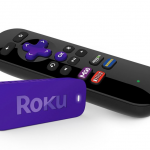
The Google Chromecast, which was announced in conjunction with the Nexus 7 last June, has been receiving a lot of attention as of late. This is mostly due to new functionality rolling out, along with the promise of more to come. But set-top box maker Roku wants a bit of that action and is now releasing it's own competitor to the Google product.
The Roku Stream Stick was unveiled today, bringing much of the same functionality. "This new tiny player plugs discreetly into an HDMI port – perfect for those beautiful wall-mounted TVs – and packs the complete Roku streaming experience", states Roku's SVP of product management, Jim Funk.
Zombies, Run! Season 3 out next month

I went for a 5k run before starting work this morning, and as always Zombies, Run! provided me with the motivation required to not come to a stop, bored, after ten minutes. I’ve covered the immersive app several times in the past, but if you’re not familiar with it, Zombies, Run! basically turns a real-world jog into a journey through the zombie apocalypse. Episodic stories unfold in between tracks from your playlist as you run.
There are plenty of episodes on offer for regular runners, and a radio mode will give you something to listen to once you’ve finished with the main story and side quests. However, sooner or later you’ll have listened to everything and be ready for new tales, and the good news is they’re on their way.
GroupFlix a-la-carte TV beta opens for sign-up

I know I’ve talked a lot about home media and cord-cutting these days, but it is becoming an increasingly busy subject. Now a brand new service is aiming to move into the market, and it brings some intriguing promise with it.
GroupFlix may not be a name you are familiar with, but that certainly could change in 2014. The company is partnering up with studios to build a library of content that could be the answer to tearing customers away from the cable and satellite providers.
$1.7 trillion a year, the cost of dealing with business email

Email has become a staple of business communication and although it's essentially free it has a hidden cost in terms the time spent dealing with it.
Collaborative email service Contatta has released an infographic which quantifies how time consuming and costly business email has become.
Skype for Outlook.com finally available to all, gains HD video calling

Ten months ago, Microsoft announced it would be rolling out a preview version of Skype for Outlook.com in the United Kingdom that would allow users to make audio and video calls directly from their inboxes.
Three months later, the devices and services giant expanded the preview’s availability to five additional countries -- United States, Canada, Germany, France and Brazil -- and stated it would be rolling out the feature to the rest of the world "in the coming weeks". A mere seven months later and finally, today, Microsoft makes good on that promise, announcing that Skype for Outlook.com is now available to all. The service also gains support for HD video calls.
Automatically back up your flash drives with USBFlashCopy

Backing up the contents of a USB key is simple enough: plug it in, open Explorer, select any important files and copy them wherever you like.
The process can become a little tedious, especially if you’re doing it all the time. But there could be a very easy solution. Just get the free-for-personal-use USBFlashCopy to automatically run any backups for you.
Free content marketing for all from inPowered
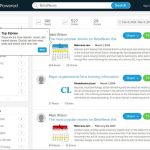
San Francisco-based content discovery specialist inPowered is making its discovery and amplification platform free for all organizations.
The software aims to help companies uncover trusted content, such as third-party reviews and articles, and use it to inform and engage their audience.
Logitech brings its Harmony brand to the keyboard, wants to control your home theater
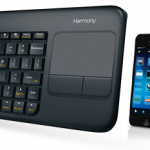
Logitech’s Harmony line has been getting a recent refresh, with new remote controls being released. The universal remotes are highly useful for home theater enthusiasts, as they offer easy programming and excellent functionality.
Now the expansion continues, but this time it jumps to the keyboard. You don’t even need to have an HTPC to take advantage of this new keyboard in your living room, thanks to a unique design idea.
Fragment is an ultra-lightweight, cross-platform image viewer

The image viewer market is a tough and competitive place, and it’s extremely difficult for newcomers to stand out from the crowd. You might try to pack in the features, for instance -- but it probably won’t make any difference. A big-name contender like IrfanView has been around for almost 18 years, and creating something even a fraction as powerful would take a very long time.
Fortunately, Fragment Image Viewer took another route. It’s not crammed with functions, there are no editing or batch processing tools: compared to many viewers, it’s really quite basic. But the program does have a few interesting and unusual tricks, which might, perhaps, persuade you to give it a try.
Most Commented Stories
© 1998-2024 BetaNews, Inc. All Rights Reserved. Privacy Policy - Cookie Policy.




